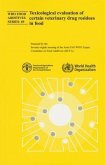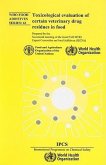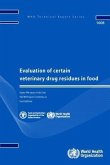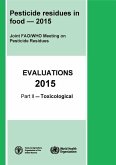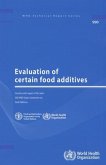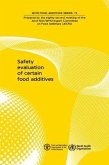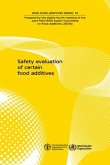This volume contains monographs prepared at the eighty-first meeting of the Joint FAO/WHO Expert Committee on Food Additives (JECFA), which met in Rome, Italy, from 17 to 26 November 2015. The toxicological monographs in this volume summarize data on the veterinary drug residues that were evaluated toxicologically by the Committee: diflubenzuron, ivermectin, sisapronil and teflubenzuron. Annexed to the report is a summary of the Committee's recommendations on these and other drugs discussed at the eighty-first meeting, including acceptable daily intakes (ADIs), acute reference doses (ARfDs) and proposed maximum residue limits (MRLs). This volume and others in the WHO Food Additives Series contain information that is useful to those who produce and use food additives and veterinary drugs and those involved with controlling contaminants in food, government and food regulatory officers, industrial testing laboratories, toxicological laboratories and universities.
Hinweis: Dieser Artikel kann nur an eine deutsche Lieferadresse ausgeliefert werden.
Hinweis: Dieser Artikel kann nur an eine deutsche Lieferadresse ausgeliefert werden.


